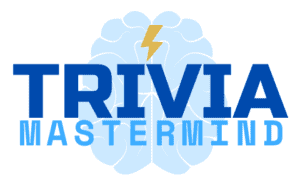
I have been a lover of Trivia since I can remember. Having spent countless hours playing trivia games in all available forms, I have become quite good at it in a variety of topics. Recently, I started to consider the reality of one of my favorite past-times and if it was actually enhancing my intelligence, so I set out to find if my hobby was making me smarter, or if I was basically wasting my time learning useless facts.
Being proficient at trivia can be a sign of having higher intelligence. Consuming information and being able to apply it is most certainly indicative of one’s intellect. According to Oxford Languages, intelligence is “the ability to acquire and apply knowledge and skills”. So by definition, the more you can consume, recall, and apply, the more intelligent you are.
Trivia literally tests your ability to recall and apply your consumed knowledge directly, so the more you can remember and use, the better you can score in trivia. The better you can perform at trivia, then likely, the smarter you should in fact be.
Currently, the term “intelligence” seems to have become a bit convoluted. In searching through a variety of forums and websites, I noticed that in a lot of instances, many people equate intelligence with a myriad of traits, and associate the term to a broader sense of self-awareness, logic, consideration, and fulfillment. While I don’t disagree with these sentiments, the application of the actual definition does not fully accommodate this level of flexibility or interpretation.
However, as with most answers to questions, there are nuances.
Trivia and the Perceived Value of Information
The term “trivia” is based on the word “trivial” which are things of low value or importance. By nature, the word “trivia” has been historically associated with unimportant facts. So in theory, if you are good at trivia, you are knowledgable in unimportant things.
However, as with most things, the value of information can change over time, meaning, certain knowledge can be considered more valuable based on a variety of variables. And since knowledge by definition is an ability, the information itself is unimportant to the meaning of intelligence. In other words, you can be highly intelligent and only care to know things deemed to be of lower value.
Seemingly, people tend to associate having great intelligence with the topics that are of high perceived value within the current time. We as a society tend to correlate high intelligence to those individuals who we collectively believe to have the most important information stored in their brains, but the key term here is “perceived” meaning, an interpreted value is placed by the individual.
As an analogy, there are highly effective athletes on the planet, that statistically, dominate their respective sports, but maybe their style of play is seen as boring or risk-averse. Does this make the athlete any less effective? No. But does the perception of that ability deem them less valuable to spectators? Likely, yes, but it does not make the athlete any less athletic because much like intelligence, athleticism is an ability that can be trained and enhanced over time.
Trivia is Good for your Brain
Taking care of our brains is crucial to our lives. We must feed our brains with good information, keep our stress levels down, and use mental exercises to flex our thinking capability. While the brain is not a muscle, it is important that we exercise our brains regularly so we maintain our ability to recall and apply our knowledge most effectively.
The use of our brains is something most people take for granted. The brain controls thoughts, speech, movement, and the function of many of our body’s organs. We must make sure we keep our brains functioning to their greatest capability as this is critical to our longevity and well being.
Like most things, in order to maintain an optimal level of performance, our brain must be nurtured, exercised, and used. Trivia is a great way to take care of our brains in a healthy and fun way. It can expand our recollection capabilities, allow us to learn new information, and peak our interests in new topics.
Using Trivia to Increase your Intelligence
So now we know, if you are good at trivia, you are likely an intelligent person. But maybe you’re not so great at trivia? Does that make you less intelligent? Probably not. Likely, you are just a busy person like most of us and don’t have the desire to make time for trivia. The good news is, if we take the time to do so, we can use trivia to make ourselves smarter.
Trivia can be a great way to learn about new things or reinforce complex topics that can help us in our lives. Learning new topics can be tedious and boring. The idea that we must have a deep passion in order to develop or pursue our own intellectual development ultimately supports a mindset of excuse-making. If you have the desire to be smarter, you can be, but you must put forth some means of effort in doing so.
You don’t have to love every topic you learn about, but the value of these topics could be very important to your existence, so you should pursue these learning opportunities when you have time. Trivia can be a great way of doing so because it can gamify the learning experience and make the experience feel more like a hobby than a responsibility.
How Gamification Helps us Learn
When we use games to help us learn, we can remove the traditionally boring practice of what learning has to be. We do so by using a different incentive for ourselves; having fun. With more conventional ways of increasing our intelligence, like studying a thick textbook as an example, (yuck) learning can be quite boring.
Let’s face it, sometimes, the idea of working to increase our intelligence just doesn’t feel fun. Making a game out of learning can be a great way to educate ourselves without even focusing on the arduous task specifically. What makes the method so effective is, it motivates us through entertainment rather than having to work to attain the desired result of enhancing our intelligence specifically. In other words, we can trick our brains into learning new things, which is a great way to increase our intelligence, and that will most certainly make you smarter over time.
Inadvertently or not, the outcome is a positive one and one I highly recommend. This is an ideal win-win-win scenario in my book; have fun, learn new things, and increase your intelligence. You can be productive while keeping yourself entertained. What’s better than that?
The Human Desire to be Perceived as Intelligent
Ultimately, we all want to be perceived as intelligent, hence why placing a specific value on direct performance indicators can be a sensitive subject. No one wants to feel like they are unintelligent because they don’t do well in trivia. Granted, there is a ton of factors that influence how we perform at most things, so being bad at trivia would not indicate we are stupid, but possibly, that we have may have high anxiety during competitive scenarios (as an example). However, like with most things, the more we experience them, the more comfortable we become, then the more proficient we can be with our skills and abilities.
Ultimately, the word “trivia” is associated with information of lower value, and intelligence is an ability, so when you associate the two words, it is seemingly a contradiction. The key here is, picking the topic of trivia you can use to enhance your capacity to retain, recall, and apply in a meaningful way to your life. So, if you love trivia, you can use it as a very powerful way to increase your intelligence and even learn more about valuable topics, just make sure to avoid trivial topics.
Recent Posts
Science Trivia - Astronomy ...
Step into a realm of nostalgia as we embark on a journey through the annals of pop culture and bid farewell to 35 recently obsolete technologies. In the ever-evolving landscape of innovation, certain...
